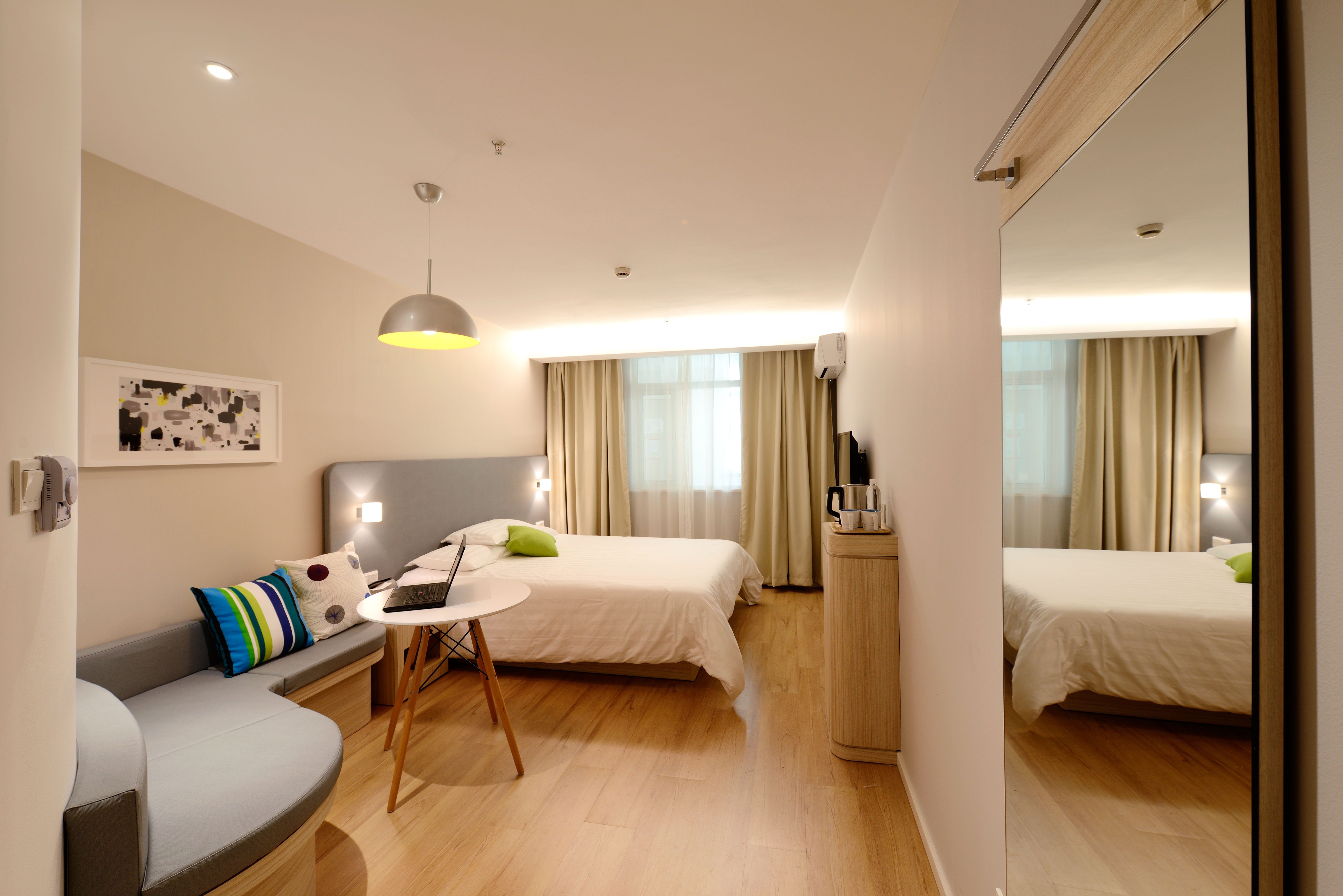Arranging a hotel block and finalizing the contract is one of the most important parts of planning an event. It can also be one of the most overwhelming and confusing processes. There’s hotel jargon, legal terms, and the idea of facing off against someone over the negotiating table. We’re here to walk you through the basics of negotiating hotel blocks.

Why Negotiate a Hotel Block?
A hotel block is the base of operations for your entire event. Without a firm hotel contract, everything else is up in the air. Where will your guests stay? What rooms do you have reserved for meetings and presentations? How much will it cost for each guest to attend? It all comes back to the hotel block. A hotel block keeps everyone organized and in one central place. Hotel blocks are crucial for event planners, but they also make a big difference for guests.
It’s possible to plan an event where guests are responsible for their own accommodations, but it’s becoming increasingly rare. In today’s world, a hotel block is considered a professional courtesy because it makes it easy for guests to book their travel and make a reservation. The easier it is for guests, the more likely they will attend your conference or event. You don’t want one guest to reserve a room for $100 a night and another guest to be forced to pay $500 a night to stay at the same hotel. Plus, hotel blocks often mean that guests get a discounted rate because the event organizers are bringing in lots of business to the hotel. Hotel blocks make everyone equal and keeps things consistent.
Are you convinced now that hotel blocks are a crucial foundation to a good event? Here are some best practices on how to negotiate a hotel block, no matter if it’s your first time or your 50th time.
 Start Early
Start Early
Major events book their room blocks three to five years in advance. The bigger the event, the earlier you should start. Even a smaller event benefits from starting the hotel process as early as possible. Remember, it’s the starting place for your event. Nothing else can be finalized until the hotel is in place.
Starting early gives you better rates than waiting until the last minute. If a hotel representative sees that your event is in less than a year, they’ll know you don’t have as many options. They’re more likely to raise the rates. Starting earlier gives you more negotiating power to get what you want. Hotels want to be full, and if you’re the first event to book the hotel a ways out, you have more cards in your hand. When learning how to negotiate a hotel block, starting early also gives you more time to iron out the details and work through the process.
 Do Your Homework Before Negotiating A Hotel Block
Do Your Homework Before Negotiating A Hotel Block
This is absolutely, without a doubt, the most important step of the entire process. Walking into a hotel negotiation without knowing exactly what you want and need is like walking into a fight without any training or gear. You have to have a game plan of what you need and how you’re going to get it.
“I try to know everything I can before I ever start to negotiate,” said Terry Quick, owner of ENTCO International and all-around hotel negotiation guru. “If you have a blueprint and are prepared, you’re already in the top 30% of event professionals.”
Terry recommends creating a detailed flow chart with everything about your event. This is a detailed outline of the event that includes things like:
- Audience
- Schedule and timeline
- Rooms
- A/V needs
- Food and beverage needs
- Transportation
The goal is to know everything you need before you contact any hotels. Creating a blueprint of the event keeps you organized so that you don’t forget anything during negotiation. It also helps you find the hotel that is the best fit. If you realize you’ll need room for 2,000 guests, a restaurant with a killer bar, and some outdoor space, the number of possible hotels likely just went down.
Being organized also helps you make a good impression. Hotel sales reps don’t like working with people who aren’t organized and who don’t know what they are doing. Coming in with a complete game plan starts you off on the right foot. It’s the sign of a true professional.
Use your event blueprint to narrow down your choices to the three to five hotels that are the best fit for your event. Those hotels can then give you a bid on the hotel block, and you can start to compare offers.
Before you start negotiating, you also might want to brush up on hotel jargon. What’s CSM, BAR, BEO, and LOS? Check out a hotel jargon dictionary so you can understand what’s being said.
 Visit The Hotel In Person
Visit The Hotel In Person
After you’ve gotten bids back from the hotels, it’s time to hit the pavement. If possible, visit each hotel for a site inspection. Things look different in real life than they do on paper. A hotel that looks great online could have some glaring issues when you see it in person. Likewise, a hotel that might not seem absolutely perfect online could check all the boxes in real life. You can also meet the hotel sales staff to get an idea of what they would be like to work with.
When you visit the hotel, look for things that can’t be conveyed online. Make sure everything about the property meets your needs. Check the size of the space, the quality of the rooms, the acoustics, the hotel amenities, and the parking situation. Make sure the hotel is in a good neighborhood and that there isn’t construction or loud noise around. Check the travel time from the airport, visit restaurants in the area, and travel on public transportation. If possible, spend the night at the hotel to get the full experience. Treat the site visit like a guest would experience the hotel at the event. Look for things that would hinder the event or cause your guests to have a less-than-stellar experience.
 Negotiate The Hotel Block
Negotiate The Hotel Block
After visiting the hotels, narrow down the choices to the top one or two hotels. Work with the hotel sales reps to negotiate the details until you have one preferred hotel. In general, don’t ever sign the first version of the contract. Read through it carefully and don’t be afraid to make revisions. Hotel reps expect you to come back with a counter-proposal. Don’t feel the need to tell them your budget upfront. You can instead say that it is “under development” to keep some of the bargaining power in your hand.
Work back and forth with negotiations and different versions of the contract until both sides are happy with the agreement. This process can take some time. Always read things carefully and don’t take things personally. The hotel sales team isn’t out to get you—they’re just doing their job and trying to get the best deal possible for their hotel. You may feel pressured with deadlines, but you can always gently push back until you are totally comfortable. Once you are both in agreement, sign the contract!
That’s the basics of negotiating a hotel block. On paper, it’s a fairly straightforward process. But few things in the world of events are ever as simple as they seem. Keep these tips in mind when working through the hotel process.
 Get The Hotel Block In Writing
Get The Hotel Block In Writing
This is Contracts 101. Everything you discuss and agree to needs to be in writing. If you have a phone conversation with someone from the hotel, follow it up with an email summarizing what you discussed. Always keep a paper trail. Don’t take anything for granted. Even the tiniest details need to be written down so that they don’t fall through the cracks later. Written reports not only help you stay organized but also protect you to ensure the hotel does everything it promises to.
There is also high turnover in hotel sales, so chances are that the person you negotiated the deal with might not be there for the actual event. This is especially true if you’re signing a contract years before the event. Getting everything in writing ensures that no matter who ends up handling your event knows what was agreed to and the finalized prices and details for everything.
 Find A Mentor
Find A Mentor
Negotiating a hotel block is a long and involved process. It can be difficult for an event professional who only negotiates one or two contracts a year—if that—to go up against hotel staff that is trained to negotiate and that does it every day. Terry compares it to someone who played high school basketball getting thrown into an NBA game. Don’t think you can go up against a professional and get a great deal your first time. There’s likely going to be some missed three-pointers and fouls along the way.
That’s where a mentor comes in. It could be a more experienced event professional at your company, a retired hotel guru, or someone who has worked all kinds of industry events. Every hotel contract and situation is unique. No matter how much you read, the real deal will always be different. A mentor can walk you through the entire process and give personalized advice for your situation. They can show you how to a negotiate hotel block in real life. Have them negotiate parts of the contract to see them in action. Ask questions about what you should prioritize in your negotiation. Give them clauses and contracts to review before you sign anything. If possible, have your mentor work with you on a few contracts, giving you more control each time, until you feel comfortable to do it all on your own.
Even if you’re just emailing someone on the other side of the country with a few questions throughout the process, find someone you can trust to help you out. Most experienced event professionals have been there and know what it’s like to work your first contract. They’re likely eager to help.
 Be Thorough
Be Thorough
Remember, the hotel contract is the foundation of the entire event. Don’t skimp and overlook any categories. It’s better to include too much than not enough. Adding extra details to your contract gives you more peace of mind about what will be included in the hotel block.
Events today are a huge business. Rarely is a hotel block just a block of rooms for guests to book. Everything is negotiable. Aim high—the worst they can say is no. Likely, you’ll end up with some extra details just because you asked.
The hotel contract is your chance to add special details to the event. Think of everything you could possibly want or need. Include things like:
- Catering discount
- Complimentary breakfast or room service
- Credit to the bar
- Shuttle service to the airport
- Free Wi-Fi
- Upgraded amenities
- Welcome bags or gifts to the rooms
Include Clauses
Clauses are an important part of a hotel block contract. They can also be overwhelming. Most hotels and event companies have a standard hotel contract they can personalize for each event. Templates can also be found online that include the basic clauses. Don’t forget important clauses like these:
- No-walk penalty clause. The clause protects you from getting booted out if another group comes in. Without this clause, a hotel could move you to a different location if they get an offer from a larger or more profitable event for the same dates.
- Ownership change clause. This gives you the option to back out if hotel ownership changes. If you sign a deal with Hyatt and the hotel gets sold to someone else before your event, this clause gets you out of the deal.
- Hotel maintenance clause. Including this in the contract means that the hotel must be in the same or better condition for the event than it was when you signed the deal. This means that if the hotel doesn’t do required maintenance or if it drops from a four-star hotel to a three-star hotel, you can back out before the event.
- Allowable shrinkage clause. This is the number of rooms that are allowed to go unbooked without you getting penalized. Try to keep the shrinkage amount to under 20%. For example, if your block is for 1,000 rooms, aim for a shrinkage clause of less than 200 rooms. That means that if 200 rooms of your 1,000 block aren’t booked, you won’t get charged an extra fee.
- Minimum commitment clause. This is the number of rooms that must be filled to avoid a fee. Try to keep this number around 80-90%. For example, if your block is 300 rooms, you owe the hotel for rooms that aren’t full up to 80% of the block. If you don’t book the minimum amount of rooms in the block, you’ll owe for up to 240 rooms.
 Conclusion
Conclusion
The hotel block sets the tone for your event. A detailed block at a luxury hotel with lots of clauses and amenities included in the contract can create a great experience for guests and make running the actual event much easier. On the flip side, a sloppy contract with lots of holes can create an event that is chaotic and not well executed.
Negotiating a hotel block is a long process, so be prepared and start early. If you get overwhelmed, remember that the most important thing is to do your research. Map out your event and consider everything you need before you contact a single hotel.
You can do it! Once you’ve negotiated a few contracts, you’ll get the hang of it and know more about what to expect.










